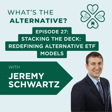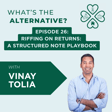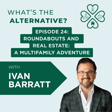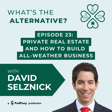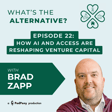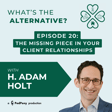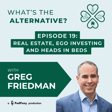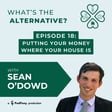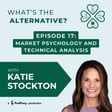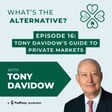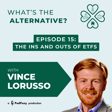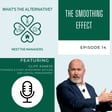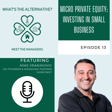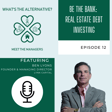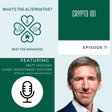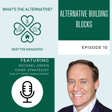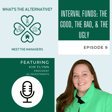
What's the Alternative? | Episode 2 | A Guided Legacy featuring Josh Kanter
Welcome to Banrion Capital Management’s What’s the Alternative Podcast! Join host Shana Orczyk Sissel, the “Queen of Alternatives” Founder & CEO of Banrion Capital Management, as she interviews leaders in the alternative investment space. Learn more about their firms, their passions and about the many different ways investors can use alternative investments to add value in their investment portfolios.
In this episode "A Guided Legacy" Shana is joined by Josh Kanter, Founder and CEO of Leafplanner to talk about something a little different, how a legacy planning tool like Leafplanner can help advisors deepen their client relationships and also create a more complete picture of the client's financial life.
The idea for Leafplanner arose after Josh went through his own complex succession planning situation. When Josh's father, Burton Kanter, a tax attorney himself, passed away in 2001, Josh left his job as a successful lawyer, to work full time managing his father's estate. Beyond the sheer complexity of his father's affairs, Josh struggled to fill in the blanks of missing information and a complex 10,000 page estate tax return. It took Josh more than a decade to settle the estate. The experience drove Josh to begin working with families to create road maps that went well above and beyond traditional estate planning. Eventually this led to the development of Leafplanner, a technology that creates a web of information and contacts for a family called a ‘Leafplan’, which documents a family business’s enterprise structure. It helps them with ‘connecting the minute details’ and seeing how every trust, bank account, asset and adviser relates to one another, according to the tech service. The platform also provides family members with advice around the discovery of information from the first generation, as well as ‘checklists’ as they go along. This guided approach to someone's legacy leaves no stone unturned. As Shana and Josh discuss in this episode.
Learn more about the software and schedule a demo: Leafplanner
Connect with Josh on LinkedIn: Joshua Kanter
Learn More About Banrion: Banrion Capital Management
Connect with Shana on LinkedIn: Shana Orczyk Sissel
Connect with Shana 𝕏: @shanas621
Important Disclosures:
The opinions expressed on the “What’s the Alternative Podcast” are for general informational purposes only and are not intended to provide specific advice or recommendations for any individual or on any specific security.
It is only intended to provide education about the financial industry. To determine which investments may be appropriate for you, consult your financial advisor prior to investing. Any past performance discussed during this program is no guarantee of future results.
The guests featured on this program are participants on Banrion Capital Management’s platform. As such Banrion may receive payment for their participation as a platform partner.
Any indices referenced for comparison are unmanaged and cannot be invested into directly. As always please remember investing involves risk and possible loss of principal capital; please seek advice from a licensed professional.
Investments are not FDIC-insured, nor are they deposits of or guaranteed by a bank or any other entity, so

